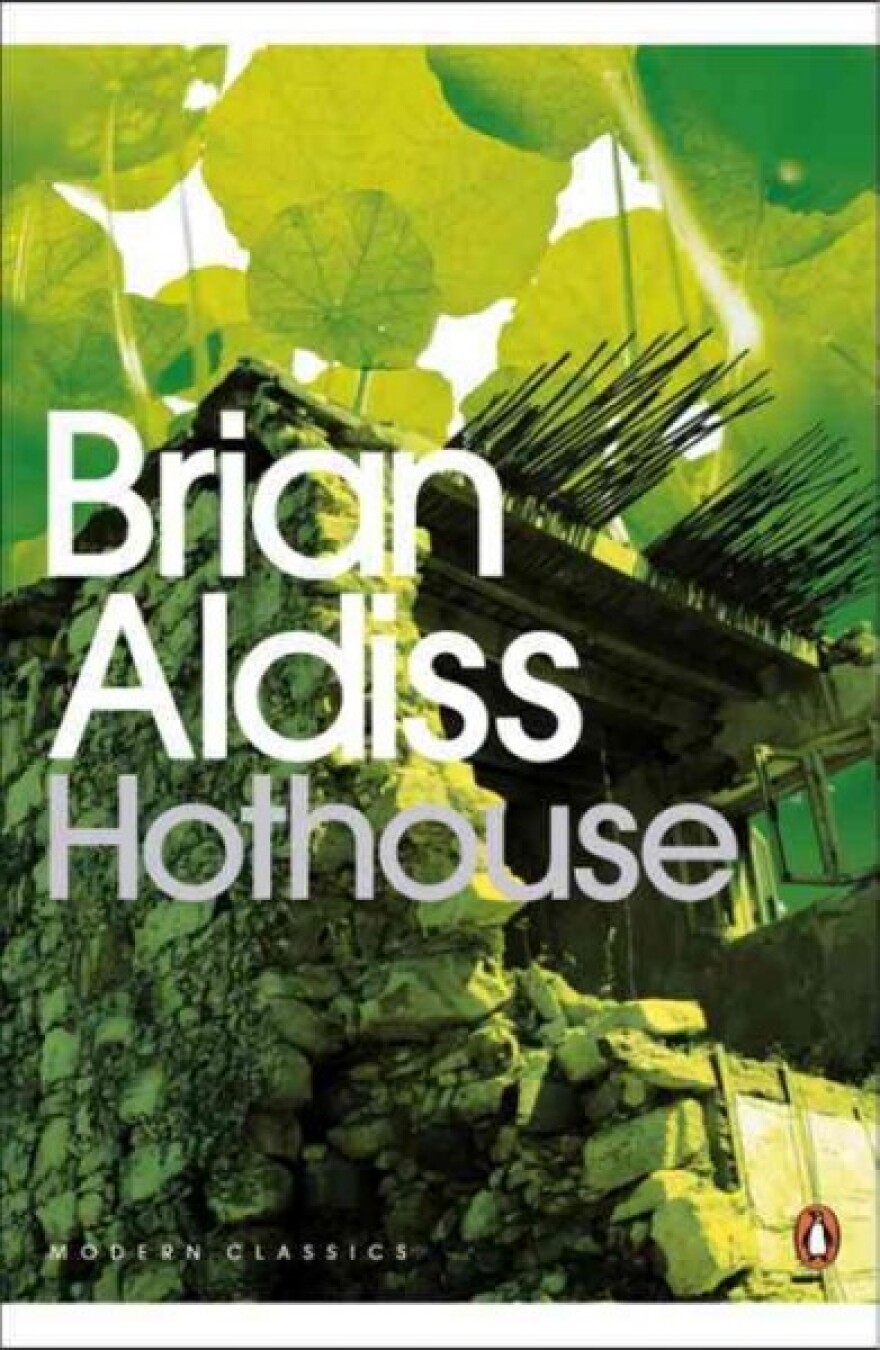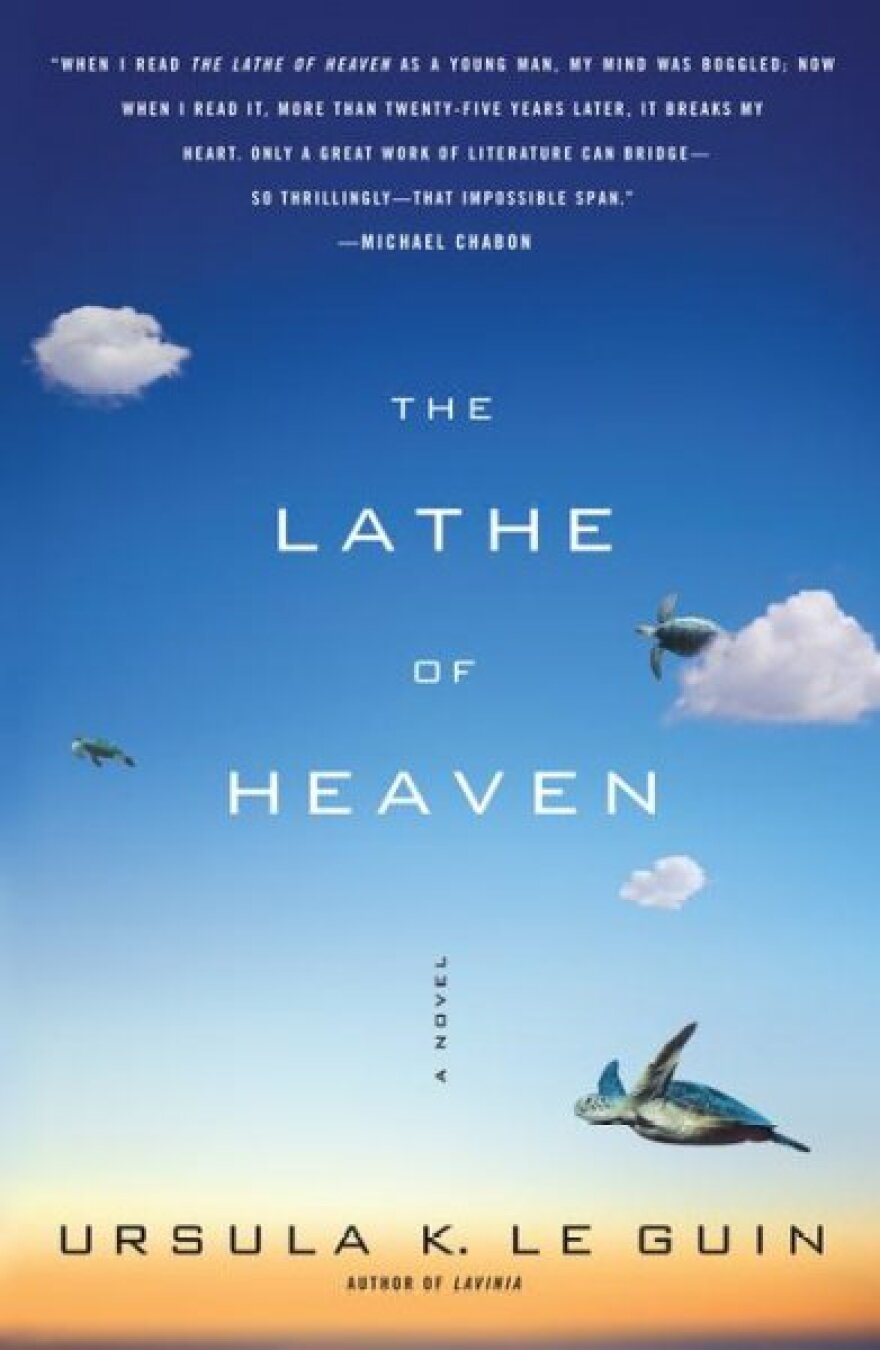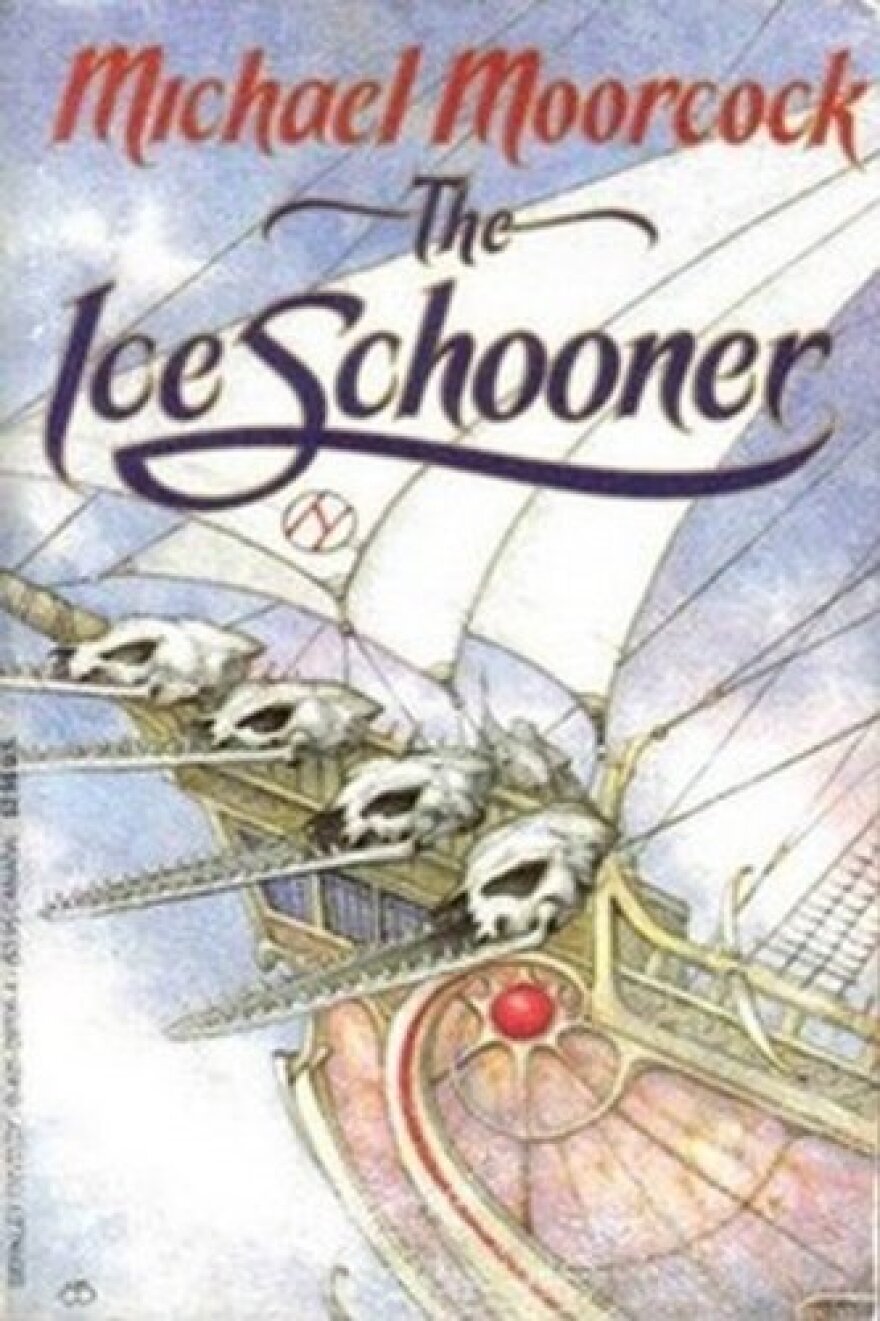As yet another record-breaking summer heats up, the effects of climate change — and the debates surrounding it — aren't going away. It only makes sense then that literature has continued to respond in kind. Authors as varied as Paolo Bacigalupi, Jenni Fagan and Ben Lerner, in their novels The Water Knife, The Sunlight Pilgrims and 10:04, have tackled just how devastating climate change in the 21st century might be. Their variations on climate fiction, or cli-fi, have become even more resonant as megastorms get stronger, ice caps melt and politicians drag their feet. Climate change, however, is not a new thing, and science fiction authors have been exploring the impact of weather-gone-wild for decades. Here are a few proto-cli-fi novels from years past that ring eerily cautionary today.
These Cli-Fi Classics Are Cautionary Tales For Today
The Crystal World

by J. G. Ballard
J.G. Ballard is often considered the godfather of cli-fi. The legendary British author's cataclysmic novels of the 1960s, including The Burning World, The Drowned World and The Wind from Nowhere, imagine the nightmarish results of a trio of climate-based disasters. But they're all pulpy in nature compared with 1966's The Crystal World. In his first truly mature work, Ballard draws from Joseph Conrad's Heart of Darkness in his effort to symbolize climate change as something far more insidious — a transmutation of the atomic structure of nature itself, one that's gradually rendering all flora and fauna as crystal. It's a startling yet subtle work that cuts to the heart of the stark reality of climate change: that we might soon be living in a world that's fundamentally alien to us. In a sense, The Crystal World is a body horror novel — except instead of the body horror happening to a person, it's happening to the Earth.
Hothouse

by Brian Aldiss
Eerie and hallucinatory, Brian Aldiss' Hothouse — a sequence of short stories published collectively in 1962 — remains one of the most radical visions of climate change committed to writing. In it, Earth of the furthest future has been transformed so completely that it's nearly unrecognizable. The orbits of the sun, Earth, and the moon have changed to the point where the same side of the terrestrial surface constantly faces old Sol, and the moon is attached to Earth by a vast system of webs woven by star-hopping, spiderlike plants. Humans struggle to survive in this bizarre world of sentient fungus and tropical temperatures — which, admittedly, isn't very scientifically plausible but is all the more wondrous because of Aldiss' unbound imagination.
The Lathe of Heaven: A Novel

by Ursula K. Le Guin
There are many unnerving premonitions in the many-worlds kaleidoscope that is The Lathe of Heaven, published in 1971, including the notion of an endless war in the Middle East and a plague that decimates humanity. It is, after all, the story of a man, George Orr, who can change reality be dreaming about it — an unimaginable talent that is harnessed by a psychotherapist named William Haber. The contrast between Orr and Haber leads to multiple realities of increasingly nightmarish alarm, but one of the most harrowing is the baseline reality encountered at the start of this Ursula K. Le Guin classic: the comparatively mundane dystopia of a Portland, Ore., that's ceaselessly inundated with rain due to climate change and the subsequent poverty and malnutrition that come from the devastation of widespread global warming.
Parable of the Sower

by Octavia E. Butler
Parable of the Sower and its follow-up, Parable of the Talents, may have been published in 1993 and 1998, respectively, but it's as though Octavia E. Butler had a looking glass trained squarely on 2019. The first two installments in a great unfinished saga — the legendary author died in 2006 — the books detailed a racist, populist upsurge in an America led by a demagogue president. But the books also foresaw the cascade of climate change that has beset us today, although Butler suffused that horror with a hopefulness that humankind might find a way to overcome such dire transformations in our environment. Not only is there optimism about how people might directly cope in the face of climate change, but there's a solution that admittedly isn't an immediate help to anyone currently: emigration from Earth to other planets.
The Ice Schooner

by Michael Moorcock
The climate change of Michael Moorcock's 1969 novel The Ice Schooner is man-made in a different way: It's caused by a long, extreme winter that settles around Earth following a nuclear war. The book postulates a world where a new ice age has resulted in a frozen planet, with civilization reverting to a tribal, Viking-like state in which ships on giant blades skim the frigid surface of the globe. Not that they venture very far — that is, until one brave soul decides to venture forth across what was once the Atlantic, where a reality-shattering surprise awaits. There's little realistic about the science fantasy of Moorcock's setting, which owes as much to Jack London as anything else. But it does warn, in its own way, of the catastrophic climate change that humanity is arrogantly capable of unleashing on the world — and what that may mean for the future of Homo sapiens.
Ice

by Anna Kavan
Anna Kavan's Ice, like Ballard's The Crystal World, is far more metaphorical than your typical early cli-fi novel. In the frigid environment of Kavan's 1967 book — as in Moorcock's The Ice Schooner — a nuclear war has accelerated massive global climate change, including an ice shelf that has rendered the world a vast Siberia. In a series of dreamlike sequences, the nameless narrator delves inward, paralyzed by existential dread and eventually assuming a ghostly form of being in a world where hope and emotion have become as frozen as cold, hard Earth. It's a tour de force of mood and atmosphere, even as it delicately, even beautifully describes a world encased in frost and frigidity of every kind. Of all the early books involving climate change, Ice is perhaps the most fundamentally chilling.
Jason Heller is a Hugo Award-winning editor and author of the new book Strange Stars: David Bowie, Pop Music, and the Decade Sci-Fi Exploded. He's on Twitter: @jason_m_heller.
Copyright 2024 NPR. To see more, visit https://www.npr.org.



